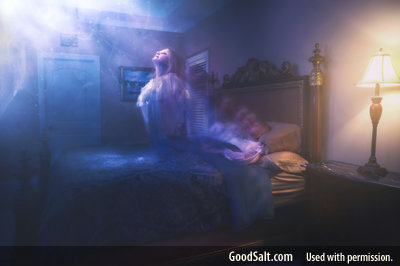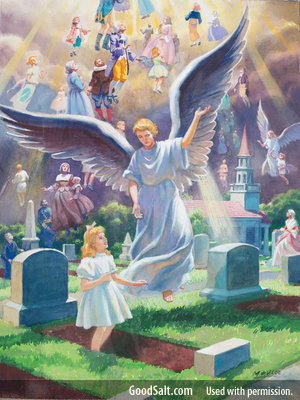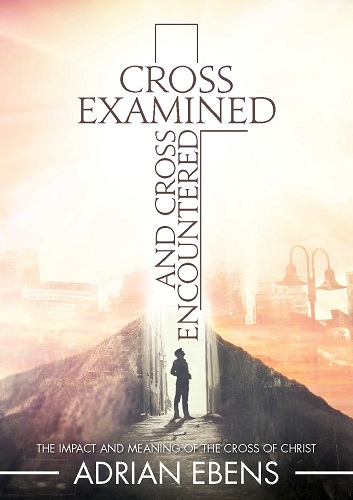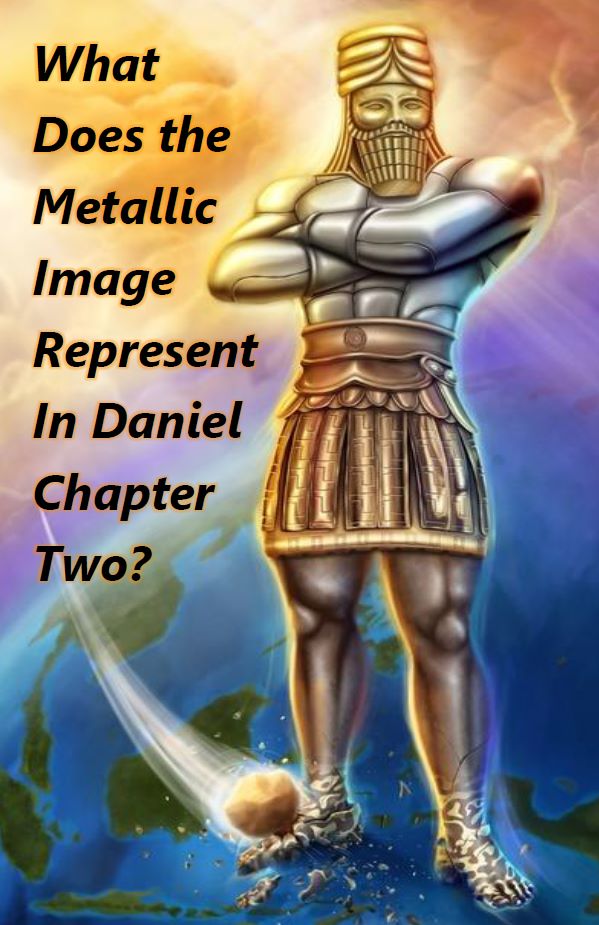(2 Corinthians 5:5, 8) Doesn’t Paul Teach That to be “Absent From the Body” is to be “Present With the Lord”?
“Therefore we are always confident, knowing that, whilst we are at home in the body, we are absent from the Lord … We are confident, I say, and willing rather to be absent from the body, and to be present with the Lord.” (2 Corinthians 5:6, 8)
 These verses can be confusing. Many believe Paul is teaching that when a believer dies, his/her soul becomes “absent from the body” and consciously goes directly to heaven to be “present with the Lord” and experience heavenly bliss. However, with a little deeper look we will see Paul does not teach this.
These verses can be confusing. Many believe Paul is teaching that when a believer dies, his/her soul becomes “absent from the body” and consciously goes directly to heaven to be “present with the Lord” and experience heavenly bliss. However, with a little deeper look we will see Paul does not teach this.
In chapter 4 of 2 Corinthians Paul is discussing that, although we experience troubles in this mortal life, we have our hope and trust in God:
“We are troubled on every side, yet not distressed; we are perplexed, but not in despair; Persecuted, but not forsaken; cast down, but not destroyed; Always bearing about in the body the dying of the Lord Jesus, that the life also of Jesus might be made manifest in our body. For we which live are always delivered unto death for Jesus’ sake, that the life also of Jesus might be made manifest in our mortal flesh.” (2 Corinthians 4:8-11)
Paul continues saying that we need not even fear death, “Knowing that He (God) which raised up the Lord Jesus shall raise up us also by Jesus, and shall present us [to Him] with you” (verse 14). Our hope away from this mortal, corruptible body is in the future resurrection.
In verses 1-8 in 2 Corinthians chapter 5 Paul continues to contrast the present mortal state with our future immortal life:
“For we know that if our earthly house of this tabernacle were dissolved, we have a building of God, an house not made with hands, eternal in the heavens. For in this we groan, earnestly desiring to be clothed upon with our house which is from heaven: If so be that being clothed we shall not be found naked. For we that are in this tabernacle do groan, being burdened: not for that we would be unclothed, but clothed upon, that mortality might be swallowed up of life. Now He that hath wrought us for the selfsame thing is God, who also hath given unto us the earnest of the Spirit. Therefore we are always confident, knowing that, whilst we are at home in the body, we are absent from the Lord: (For we walk by faith, not by sight:) We are confident, I say, and willing rather to be absent from the body, and to be present with the Lord.”
In verse 1 he uses the words “earthly house” and “this tabernacle” to illustrate our mortal bodies laden with burdens. In verse 4 He says: “For we that are in this tabernacle do groan, being burdened … that mortality might be swallowed up of life.” He also uses the words “at home in the body” and “absent from the Lord” in verse 6 to refer to our mortal bodies as well.
On the other hand, Paul uses the words “building of God” and “house not made with hands” (verse 1), and “house which is from heaven” (verse 2), and “present with the Lord” (verse 8), to refer to our immortal bodies in heaven.
The key to unlocking these verses lies on one simple word. Remember, Paul says that he desires to be “clothed upon with our house which is from heaven” (verse 2). Again, this means he desires to be clothed with immortality. Then in verse 3 he states, “If so be that being clothed [with immortality] we shall not be found naked.” And then again, he states he doesn’t want to be found “unclothed” (verse 4). So the key to unlocking these verses lies in the word “naked” or “unclothed.” Since being clothed with an “earthly house” and “this tabernacle” represents our current mortal life and being clothed with the “building from God” represents our future immortal life, what then does being naked represent? Obviously it’s neither our mortal life nor our immortal life, but the time in between – death!
Paul realizes that man does not pass instantly from being clothed in “this tabernacle” (mortal life) into being clothed with our “building from God” (immortal life). Death and the grave come in between and he referred to it as being “unclothed” or “naked.” In verse 8 he is simply saying he desires to be “absent from the body [absent from his mortal body] and to be present with the Lord [receive his immortal body].” He is NOT saying that at death the believer’s soul goes directly to heaven, but is saying he simply desires to be rid of this mortal body, laden with burdens and death, and to be in the presence of the Lord who will give him his new immortal body. When did Paul expect this to happen? At death? No, Paul’s hope was in the promised resurrection:
“We having the same spirit of faith, according as it is written, I believed, and therefore have I spoken; we also believe, and therefore speak; Knowing that He (God) which raised up the Lord Jesus shall raise up us also by Jesus, and shall present us [to Him] with you.” (2 Corinthians 4:13, 14)
Paul’s Other Writings Confirm This
To further prove Paul did not teach that a believer’s soul goes directly to heaven at death, we must read other verses which he wrote on this subject. In his second letter to Timothy he wrote:
“For I am now ready to be offered, and the time of my departure [death] is at hand. I have fought a good fight, I have finished my course, I have kept the faith: Henceforth there is laid up for me a crown of righteousness, which the Lord, the righteous judge, shall give me at that day: and not to me only, but unto all them also that love HIS APPEARING.” (2 Timothy 4:6-8)
Paul says he will receive a “crown of righteousness” on the “day” of the Lord’s “appearing” along with everyone else. Clearly he is speaking of the second coming of Jesus. Therefore, Paul taught he would not receive his crown until the second coming, not at death! It is at the second coming when we, including Paul, receive immortality. Still don’t believe? Well, let’s read what else he wrote and compare it to what we have already read in 2 Corinthians 5:6, 8:

 “Behold, I show you a mystery; we [believers in general] shall not all sleep [die, some will be translated without seeing death], but we shall all be changed, In a moment, in the twinkling of an eye, AT THE LAST TRUMP: for the trumpet shall sound, and the dead shall be raised incorruptible, and we shall be changed. For this corruptible [earthly house] must put on incorruption [building of God], and this mortal [earthly house] must put on immortality [building of God]. So when this corruptible [earthly house] shall have put on incorruption [building of God], and this mortal [earthly house] shall have put on immortality [building of God], then shall be brought to pass the saying that is written, Death [nakedness] is swallowed up in victory.” (1 Corinthians 15:51-54)
“Behold, I show you a mystery; we [believers in general] shall not all sleep [die, some will be translated without seeing death], but we shall all be changed, In a moment, in the twinkling of an eye, AT THE LAST TRUMP: for the trumpet shall sound, and the dead shall be raised incorruptible, and we shall be changed. For this corruptible [earthly house] must put on incorruption [building of God], and this mortal [earthly house] must put on immortality [building of God]. So when this corruptible [earthly house] shall have put on incorruption [building of God], and this mortal [earthly house] shall have put on immortality [building of God], then shall be brought to pass the saying that is written, Death [nakedness] is swallowed up in victory.” (1 Corinthians 15:51-54)
Here Paul clearly teaches we do not receive immortality until the “last trump” sounds. It is then, and only then, that the saying, “Death is swallowed up in victory” will come to pass. Let’s make this a little clearer by finding out when exactly this “last trump” will sound:
“For the Lord Himself shall descend from heaven with a shout, with the voice of the archangel, and WITH THE TRUMP OF GOD: and the dead in Christ shall rise first: Then we [believers in general] which are alive and remain shall be caught up together with them in the clouds, to meet the Lord in the air: and so shall we ever be with the Lord.” (1 Thessalonians 4:16, 17)
The “trump of God” sounds when “the Lord Himself shall descend from heaven.” Again, Paul is clearly speaking of the second coming here. Also notice it is not until the second coming when the “dead in Christ shall rise.” It is at this time when we are “changed, in a moment, in the twinkling of an eye” and when “this mortal shall have put on immortality.”
John quotes Jesus saying:
“In my Father's house are many mansions: if it were not so, I would have told you. I go to prepare a place for you. And if I go and prepare a place for you, I will come again, and receive you unto Myself; that where I am, there ye may be also.” (John 14:2, 3)
So, for us to be “present with the Lord,” Christ must come back to retrieve us. There would be no reason for Him to return to get us if we were already present with Him as soon as we died. The fact is, Scripture says Jesus will give His reward of eternal life to His people at His second coming:
“For the Son of man (Messiah/Jesus) shall come in the glory of His Father with His angels; and THEN He shall reward every man according to his works.” (Matthew 16:27)
“And thou shalt be blessed; for they cannot recompense thee: for thou shalt be recompensed AT THE RESURRECTION OF THE JUST.” (Luke 14:14)
“And this is the will of Him that sent Me, that every one which seeth the Son, and believeth on Him, may have everlasting life: and I will raise him up AT THE LAST DAY.” (John 6:40)
“No man can come to Me, except the Father which hath sent Me draw him: and I will raise him up AT THE LAST DAY.” (John 6:44)
“Whoso eateth My flesh, and drinketh My blood, hath eternal life; and I will raise him up AT THE LAST DAY.” (John 6:54)
“And when the chief Shepherd (Jesusa) SHALL APPEAR, ye shall receive a crown of glory that fadeth not away.” (1 Peter 5:4)
“And, behold, I (Jesus) come quickly; and MY REWARD IS WITH ME, to give every man [when He comes] according as his work shall be.” (Revelation 22:12)
Paul’s counsel for us not to fear death is founded upon the hope of the resurrection. His hope was not in death, believing that our soul floats up to heaven to be in the presence of the Lord until our soul is reunited with our body. No, the hope is in the resurrection at Christ’s second coming; for right after he describes the Lord descending from heaven with the trump of God and the dead in Christ rising (1 Thessalonians 4:16), he says “Wherefore comfort one another with these words” (verse 18). Besides, Paul knows that if a believer died a year ago or 4,000 years ago, the very next thing they will experience is their resurrection when Jesus comes again.






